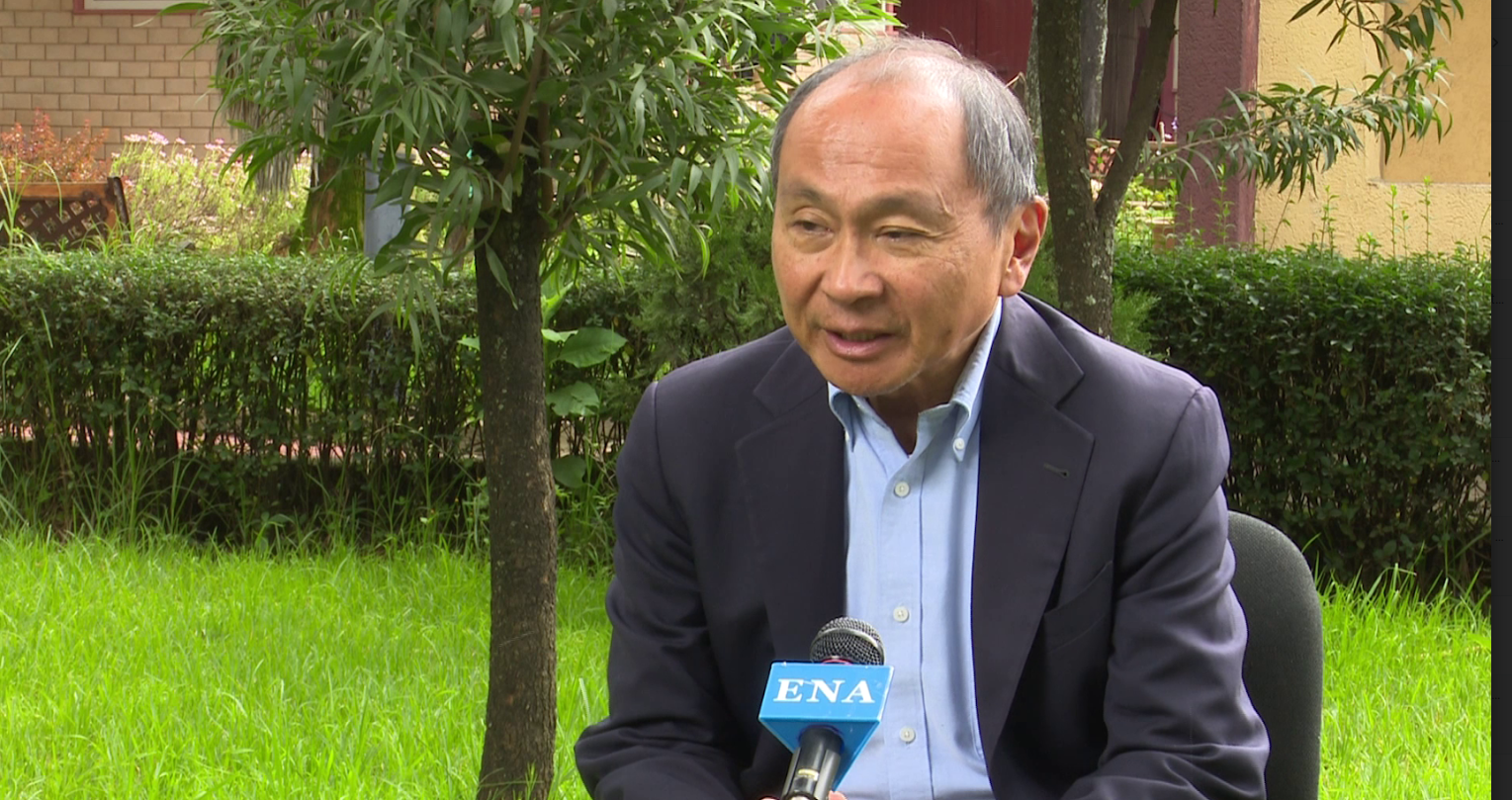Building National Unity, Impartial Bureaucracy Critical to Ethiopia, Says Fukuyama - ENA English
Building National Unity, Impartial Bureaucracy Critical to Ethiopia, Says Fukuyama

Addis Ababa August 11/2019 Building national unity, impartial bureaucracy and ensuring democracy with public participation are crucial for Ethiopia to have modern institutions that will keep the growth momentum, the globally esteemed scholar Francis Fukuyama said.
In an exclusive interview with ENA, Francis Fukuyama said Ethiopia has accomplished a lot in terms of economic development, but it was done under a very authoritarian condition and there is a desire among lots of Ethiopians for a more open society.
“I suspect that the ethnic identities in Ethiopia are very deeply rooted; and it's just a matter of political realism to say that we have to deal with them and accept their existence. They're not going to go away. However, I think that you can still build a sense of larger national identities. Non-ethnic that’s based on political ideas,” Fukuyama pointed out.
According to him, “a larger political structure is important for the sake of maintaining of peace and stability, and for being able to develop economically.”
The obvious challenge is building national unity, he said, adding that ethnic politics is very deeply rooted and represents the different groups. “There needs to be an idea of Ethiopia that unites people and a sense of Ethiopia as a nation,” Fukuyama stressed.
“In the modern world you don’t really succeed politically in tiny isolated groups. I think larger political units are necessary for economic development in terms of geopolitics and the like,” he elaborated.
Independent judiciary that is not politically motivated and used for political purposes, but simply interprets and applies the law is among the critical institutions needed by the country, the scholar stated.
“In Ethiopia’s case, it’s very important to have impartial bureaucracy that is to say the bureaucracy that doesn't serve the interests of just one party, one faction or one ethnic group, and that serves the country as a whole. I think those are two critical components of a modern state and critical for defeating corruption and for rising above ethnic politics,” Fukuyama underscored.
All societies have elites and that’s kind of inevitable, the scholar said, adding that Ethiopia wants “somebody that has a vision and is willing to sacrifice their own short-term interest for the sake of this larger vision.”
According to him, creating a modern state with bureaucracy that is recruited on the basis of professionalism, education, merit, and not simply as a result of politics, and especially not as a result of ethnic politics is one of the important things.
“Modern political system would have a bureaucracy, a civil service that is really designed to serve the whole country and not a particular part of it and that requires a different type of training, more investment in human capacity. And I think all countries really need that kind of government,” Fukuyama stressed.
Moreover, he pointed out that citizens need to be given the chance to participate in their own government not just through voting; but through consultation and the like and for that to happen there needs to be deliberation as well as the sense of moderation in terms of the demands that citizens make.
“You also need the liberal part of liberal democracy, which means a constitutional structure rule of law of limitations on what the government can do to its own citizens for their own protection. I think balancing those two is an important part of creating a modern political system. You can have one without the other and so you can have a liberal system that has a rule of law without having democracy, and you can also have democracy without a rule of law. But I think the two of them really need to go together, if you're going to have a fully modern political system,”
“A unifying national identity has to be built around ideas rather than around ethnicity. Ideas having to do with the nature of the political system I would like to see democratic ideas be at the core of you know ideas about the respect for all people. I think that's really the issue both in my country and for Ethiopia.”
Francis Fukuyama is an American political scientist, political economist, and author of many books, including “Identity: The Demand for Dignity and the Politics of Resentment”.